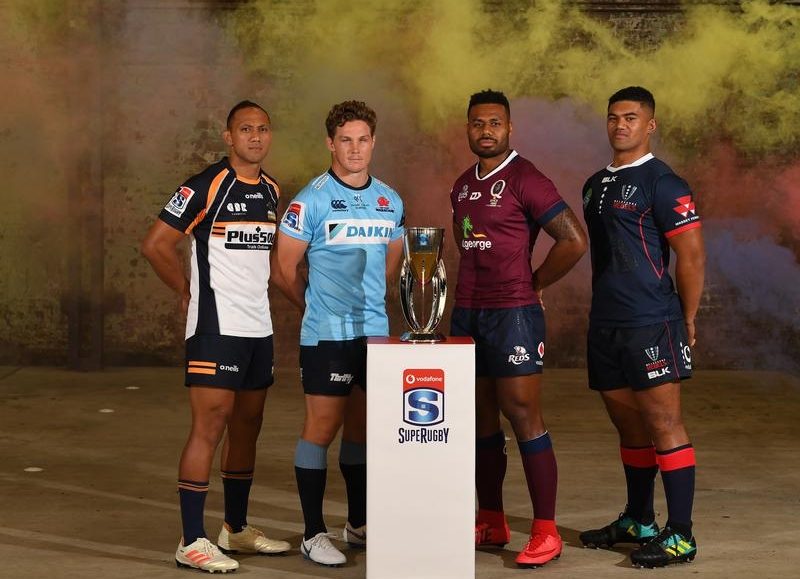
Wallabies coach Michael Cheika will seek to mirror elements of New Zealand’s approach to Super Rugby rest while plotting a precarious path to this year’s World Cup.
The Super season, formally launched in Sydney on Tuesday, begins next week and will provide players on the fringe of the national squad a chance to bolster their World Cup hopes.
It’s also the start of a logistical nightmare for Cheika, who is desperate to ensure Australia are cherry ripe for the Japan-hosted tournament in September.
New Zealand Rugby has a deal with its franchises to rest All Blacks from two regular season games.
Cheika and Rugby Australia, keen to avoid a repeat of the country versus club debate that erupted last year when the ACT Brumbies and Melbourne Rebels were asked to rest players on short notice, are yet to publicly reveal their plan.
But the expectation is that Wallabies players will be forced to miss one or two Super games this season.
As is the case with New Zealand, franchises will be empowered to make a call on who is rested when, although Cheika has been in dialogue with his four Super counterparts since September.
“Whether the Wallabies requested it or not, we would have to rest players,” Melbourne coach Dave Wessels said.
“It’s just not physically possible to play your main players for 80 minutes through (a stretch of eight games without a break).
“Cheik’s been good.
“We have a loose plan … that won’t be communicated to players up front because we want some flexibility if we have an injury in a certain position.”
NSW Waratahs coach Daryl Gibson, Queensland Reds mentor Brad Thorn and Brumbies boss Dan McKellar all expressed similar sentiments on Tuesday.
McKellar, whose club was asked to rest David Pocock and other Wallabies just days before a key Super match in 2018, praised what he described as “real collaboration” with head office.
“That probably wasn’t there in 2018,” McKellar told AAP.
“He (Cheika) will be open minded. We’ll be open minded.
“But we’ll certainly fulfil any stand-down periods that they want with players of national interest.”
The Super schedule, lack of depth compared to New Zealand, an unequal spread of Wallabies among the four clubs and differing physical demands of different positions makes it difficult to roll out a uniform policy.
Gibson had already vowed to cut down the minutes of his many stars, admitting the Waratahs erred by using only 34 players in 2018 – the lowest of any of the 15 franchises.
“The brief is that we can’t use our best players all of the time. I agree with that,” Gibson said.
“It’s been very collaborative.”




